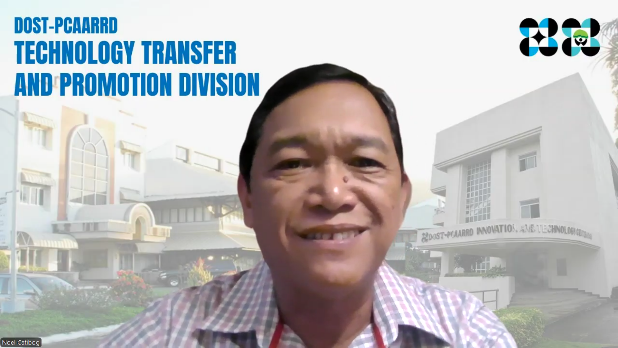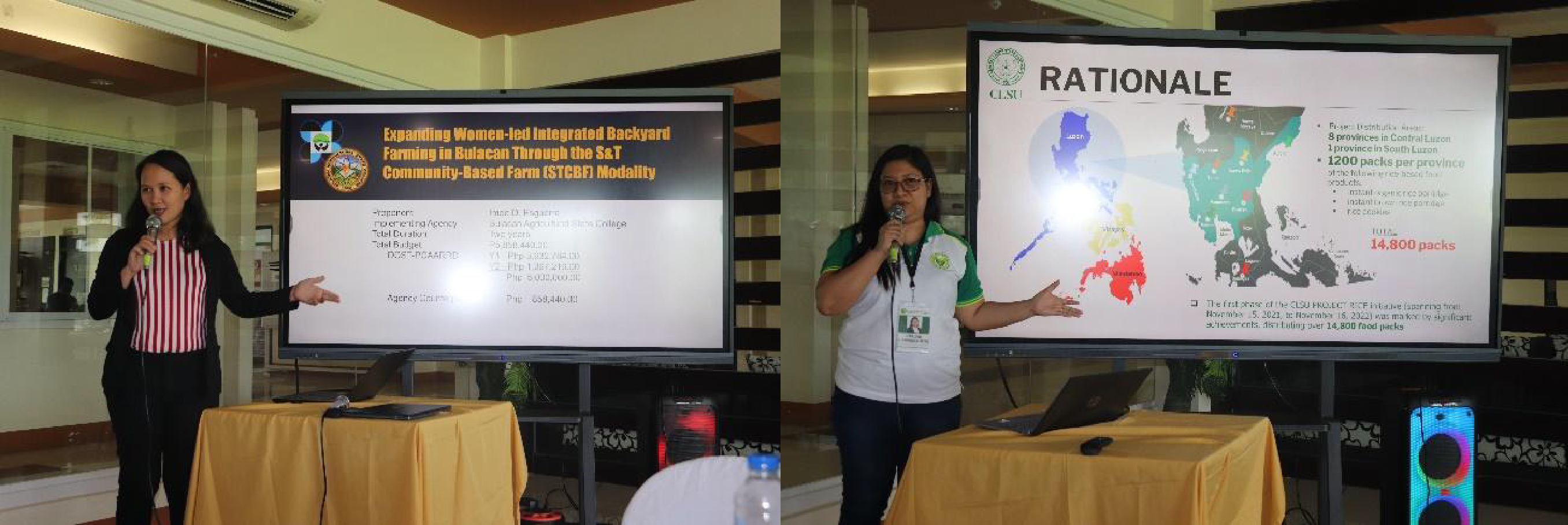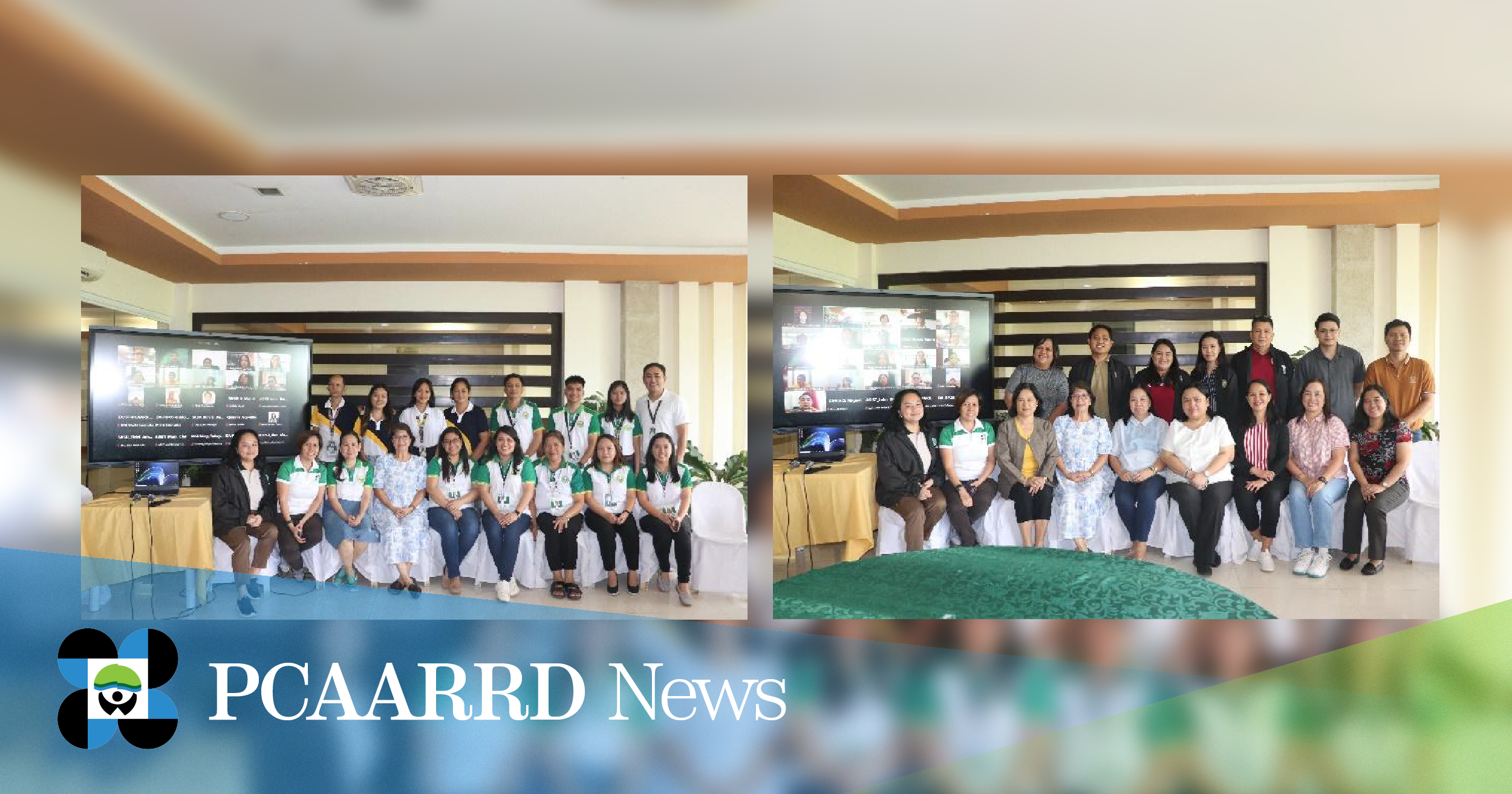The Philippine Council for Agriculture Aquatic and Natural Resources Research and Development of the Department of Science and Technology (DOST-PCAARRD) recently conducted an inception meeting in a hybrid setup for 13 newly approved technology transfer projects. These projects aim to bring science and technology-based solutions to communities nationwide. Spearheaded by various State Universities and Colleges (SUCs) and government agencies, these extension projects will provide innovative solutions to pressing challenges faced by the farmers and fisherfolk, while advancing development in the agricultural sector through the transfer of mature technologies directly to the communities.

TTPD Director Noel A. Catibog delivered his opening remarks.
The meeting was held at Central Luzon State University (CLSU), with representatives from Bulacan Agricultural State College (BASC) and CLSU attending in person, while these participants from Mindanao State University (MSU)-Maguindanao, Sultan Kudarat State University (SKSU), University of Science and Technology of Southern Philippines (USTP), Davao del Sur State College (DSSC), Department of Agriculture Regional Field Office V (DA-RFO V), Abra State Institute of Sciences and Technology (ASIST), Marinduque State University (MarSU), Isabela State University (ISU), and Cebu Technological University (CTU) joined virtually. This hybrid format allowed wider participation by accommodating stakeholders from different geographic locations, fostering meaningful engagements and inputs. The meeting brought together project teams, administrative personnel from implementing agencies, and staff from the funding/monitoring agency, DOST-PCAARRD.

DOST-PCAARRD’s Technology Transfer and Promotion Division (TTPD) Director Noel A. Catibog delivered an opening message, emphasizing the importance of the inception meeting as a venue to review the DOST-PCAARRD Grants-In-Aid (GIA) guidelines. He highlighted effective critical technical, administrative, and reportorial requirements to ensure the smooth implementation of the projects.
Director Catibog expressed hope that project teams entering Phase 2 would continuously enhance their implementation efforts, while assuring new project teams of TTPD’s committed support throughout the process. He reminded attendees that while the project proposals originate from their respective agencies, approved projects become joint undertakings between their respective agencies and the DOST-PCAARRD-TTPD. He also encouraged teams to address emerging challenges promptly by proactively seeking assistance from TTPD. Following his remarks, participants introduced themselves, and TTPD staff presented the DOST-PCAARRD Grants-in-Aid (GIA) Guidelines, addressing clarifications to ensure a shared understanding among stakeholders.

Dr. Imee D. Esguerra of BASC presented the project, “Expanding Women-led Integrated Backyard Farming in Bulacan through the S&T Community-Based Farm (STCBF) Modality” and Prof. Geraldine G. Tayag of CLSU presented the project, “CLSU Project RICE: Quick Response to Impacts of Calamities and Emergencies (Phase 2)”
Among the newly approved projects, a strong focus on community-based initiatives was highlighted targeting farming communities with interventions aimed at increasing productivity and providing livelihood opportunities. These initiatives include advanced agricultural practices, particularly those focusing on climate resilience, supported by comprehensive training programs, to ensure farmers adopt these techniques effectively.
Beyond fostering innovation, these technology transfer projects aim to transform lives by empowering communities with the tools and resources they need to thrive. This meeting marks a significant first step toward ensuring that technology-driven solutions deliver real benefits to local communities. With cross-sector collaboration, strategic alignment among stakeholders, and well-defined project goals, these initiatives are poised to make a lasting impact across the country in the coming years.

